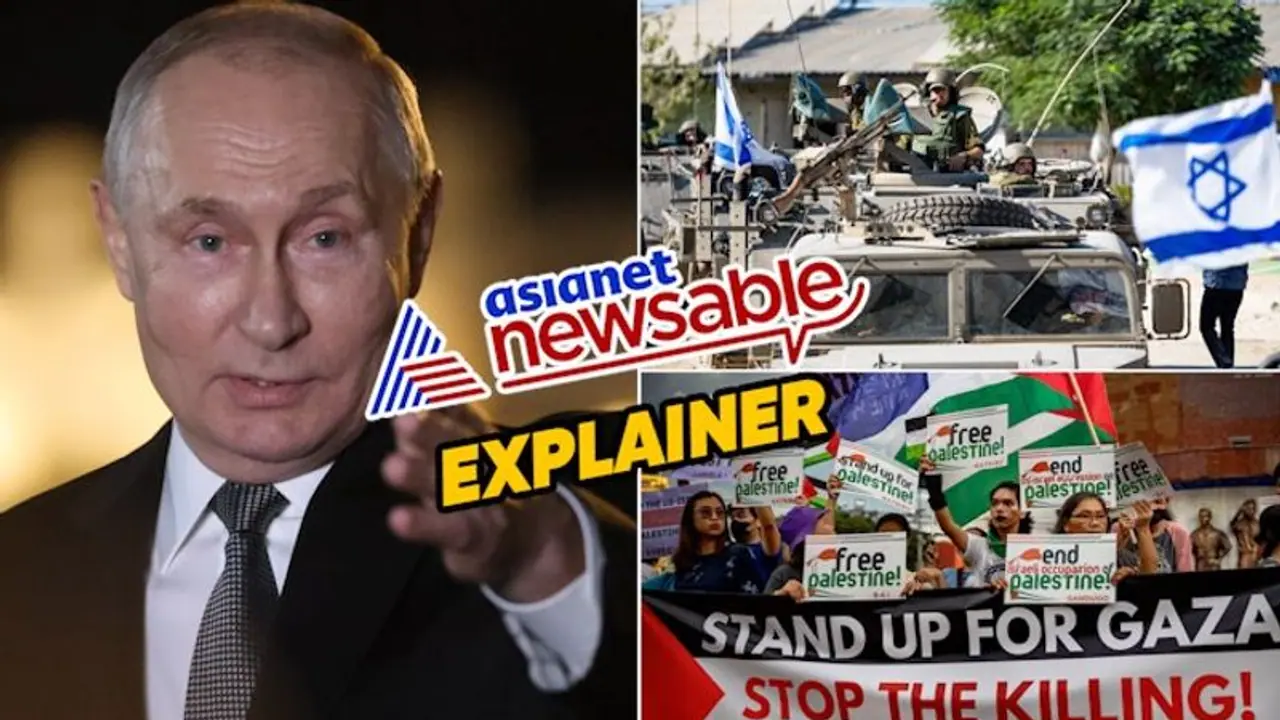The article discusses the recent conversation between Russian President Vladimir Putin and Israeli Prime Minister Benjamin Netanyahu, examining the implications of the Israel-Hamas conflict on Russia's interests in the Middle East and its potential impact on the Ukraine crisis.
Russian President Vladimir Putin initiated his first conversation with Israeli Prime Minister Benjamin Netanyahu on Monday since the deadly Hamas attack on October 7th. In this discussion, Putin updated Netanyahu on his recent talks with regional leaders and the Palestinian Authority. During the call, Putin expressed his readiness to collaborate with constructive partners to swiftly end hostilities and stabilize the situation. This delayed contact from Putin left some observers speculating on Netanyahu's reaction. The Economist reported that Netanyahu, who had visited Russia numerous times in recent years, might have been surprised that it took President Putin nine days to make the call.

Moreover, Israel had been growing uneasy about Russia's expanding relations with Iran. The ongoing conflict between Israel and Hamas could potentially benefit both Russia and Iran. The Economist suggested that a broader war might lead to increased oil and gas prices, offering a boost to both nations' struggling economies and supplying Putin with additional resources for his ongoing activities in Ukraine. Another advantage would be the disruption of America's Middle East plans.
"A wider war would probably bring two benefits to both Russia and Iran. The first would be a spike in oil and gas prices that would help both ailing economies and give Mr Putin extra money to fund his war in Ukraine. The second would be to disrupt America’s plans for the Middle East," the Economist report said.
Ann Marie Dailey, a policy researcher at the Rand Corporation, pointed out that rising oil prices would enable Russia to continue investing in arms production and cover budget deficits, granting the country a short-term advantage.
“As oil prices go up, this enables them to continue spending on arms production and it also helps them cover some budget deficits,” Ann Marie Dailey told Bloomberg. “Russia absolutely gains an advantage from this in the short-term.”
Russian Foreign Minister Sergei Lavrov suggested that President Putin's goals in Ukraine could be achieved more quickly if the United States shifted its focus to the Israel conflict and reduced its arms supplies to Ukraine.
According to confidential sources who spoke to Bloomberg, Russia could indeed benefit from the Israel-Hamas war. This conflict has the potential to divert the attention of the United States and Europe away from the Ukraine crisis, although Russia remains concerned about its escalation. However, if Hezbollah were to become involved in the Israel-Hamas conflict, it could complicate the situation significantly. This might force direct US involvement in the war, making the outcome even more uncertain. In essence, while a limited Israel-Hamas conflict is likely to be advantageous to Russia and Putin in the short term, a broader regional conflict could turn into a highly unpredictable black swan event.
